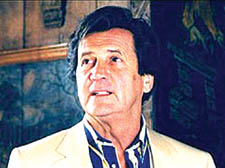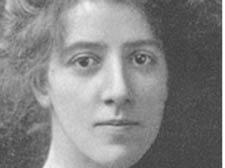|
|
 |
| |

Melvyn Bragg

Marie Stopes
|
The dazzling set of books that changed the world
Melvyn Bragg's latest book shows the influence of north London, writes
Gerald Isaaman
What a story, a sexless marriage in Hampstead that emancipated the love lives of millions of women forever. It is just one of a dozen dazzling tales Melvyn Bragg presents in his new book, up for discussion when he talks about Life and Books at the Hampstead and Highgate Festival.
Among his books that changed the world – the subject of a recent TV series presented by Bragg – there are the three volumes on Experimental Research in Electricity by Michael Faraday, brought up above a blacksmith’s in Jacob’s Mews, an alley off Oxford Street, buried in Highgate Cemetery, little lauded today for his experiments carried out in a basement in nearby Albemarle Street.
There is the birth of feminism by Mary Wollstoncraft, living with the equally radical John Godwin in St Pancras, whose fundamental stand for the rights of women changed society.
There is the birth of the beautiful game, the 1863 rules of football, discussed, debated and written in the Freemasons’ Tavern, in Lincoln’s Inn Fields, Holborn, soon to be celebrated by the World Cup.
Some may argue that Bragg’s choice is controversial, the more so since his selection of books were all written in English – and that the Rule Book of Association Football, along with the Patent Specification Of Arkwright’s Spinning Machine are hardly books at all.
But, significantly, he has included the Magna Carta, also more a declaration than a tome, Darwin’s Origin Of The Species, Shakespeare’s First Folio, Adam Smith’s Wealth Of Nations, the King James Bible and, perhaps his most enthusiastic personal choice, Newton’s devastating Principia Mathematica, that burst open the door to modern science and put man down on the surface of the moon.
The revelations made by young Marie Stopes in Married Love, were the outcome of her miserable years as a newlywed living in Well Walk, Hampstead, just half a mile from the home in Hampstead Hill Gardens of arts guru Bragg.
Bragg does not appear to appreciate that four of his major books owe their existence to events within a handful of square miles of a slice of north London, as if some magical ley-lines pass through Camden in an unprecedented creative fashion.
Whether you like to look upon that as pure coincidence doesn’t take away from what is a compelling combination of stories of the wonders and frailties of human endeavour now such a part of familiar daily life.
The courageous publication, in 1918, of Married Love, described as “a new contribution to the solution of sex difficulties,” ripped away the ignorance of millions to provide us with birth control and the acceptance of female sexual pleasure. “Its impact was instant, profound and lasting,” Bragg insists.
In her preface, Stopes wrote: “In my own marriage, I paid such a terrible price for sex-ignorance that I feel that knowledge gained at such a cost should be placed at the service of humanity.”
So she expounded and explained the “vital things” we should all so obviously know, declaring: “When knowledge and love go together to the making of each marriage, the joy that new unit the pair will reach from the physical foundations of its bodies to the heavens where its head is crowned with stars.”
To the first publisher she approached, who turned down Married Love, she wrote defiantly: “I shall send you a copy of the book when it is out. What an idea of marriage you must have if you think the truth about it will frighten people off.”
It was a philanthropist who provided the £200 to ensure publication, at a cost of two shillings a copy. The result was explosive, Stopes being deluged with correspondence, 40 per cent of it coming from men around the world and made birth control a global issue.
Her book attaining even the ironic status of a children’s skipping song:
Jeanie, Jeanie, full of hopes/Read a book by Marie Stopes/But to judge by her condition/she must have read the wrong edition.
Some may think Marie Stopes’s sexual revolution has gone too far but the folly of subsequent generations doesn’t detract at all from her lasting achievements. As Mary Stocks wrote: “Seldom, if ever, has a book brought more happiness to more people.” |
|
 |
|


